The fiery exchange between Drake and Kendrick Lamar is the focus of hip-hop, but underlying it is a more complex, layered feud. Not a sudden outburst, but the culmination of years of competitive heat, artistic shots, and lingering tension.
In his diss songs, Drake refers to a past with Kendrick Lamar that goes beyond the moment's headlines, a messy history of subtle jabs, competitive bars, and moments of coded hostility. Now, listeners see less of a fresh beef and more of an old conflict finally boiling over.
Lyrical wars have always been the norm in hip-hop culture, with witty bars and wordplay fueling competition and innovation. But when two of the genre's largest bruisers, Drake and Kendrick Lamar, are matched against one another, the fight is more than music, becoming a cultural phenomenon.
Often referred to as "rap's civil war," their clash has become more than just a feud; it's an unfolding saga that delivers chart-topping diss tracks, internet sleuthing, and endless fan theories. Whether you're dissecting double entendres or just watching the drama unfold, this lyrical showdown has turned listeners into analysts, historians, and hype men all at once.
Let's get a closer glance at the breakdown. This is more than a conflict between two rappers, it's an intersection of ideologies, legacies, and lyrical philosophies. What began as subtle shots has turned into a full-scale war of words, with every song backed by years of pent-up anger. To really grasp the richness of this beef, we must follow its timeline, decipher the lyrics, and unpack what's actually on the line for both artists.
The beef history between Drake and Kendrick Lamar throughout the years
Drake and Kendrick Lamar's bitter rivalry began in 2013 when Kendrick Lamar woke up the world of hip-hop with a scorching verse on Big Sean's Control, which got a coy but unmistakable reply from Drake.
While tension had been present in rooftop shots and interviews over the years, it came to a head again in all its fury in 2024 when Lamar laid down a blistering barrage of bars on Like That and elevated what had previously been a friendly rivalry into an outright lyrical war. The beef, conceived in dreams of artistic dominance and triumph, became one of the most dissected rap battles.
Drake and Kendrick Lamar's rapport started not through competition but through respect and collaborative chemistry. The two first joined forces in 2011 when Kendrick Lamar contributed an introspective solo track called Buried Alive Interlude to Drake's Take Care as a favor that put Kendrick Lamar, then an emerging underground moniker, in front of the masses of a giant-label superstar.
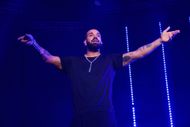
Drake was then already chart-dominating and defining the mainstream rap sound, while Kendrick Lamar was still establishing himself, having recently been named to XXL's Freshman Class. Their friendship seemed real; Kendrick Lamar publicly acknowledged Drake's honesty and even credited him with being one of the first to hear Section.80, his independently released debut.
But beneath the surface of their partnership was a revealing contrast: Drake was the embodiment of fame and material success's siren song, while Kendrick Lamar was already questioning the price tag. That initial tension between their worldviews, one artist beguiled by the glamour of celebrity, the other suspicious of it, would ultimately power the creative and ideological rift that became their signature conflict.
Read More: Top 10 Whitney Houston songs that will always live on
Even so, in the years that followed, their bond flourished: Lamar went on tour with Drake in 2012, included him on Poetic Justice from good kid, m.A.A.d city, and even collaborated on a verse with him on A$AP Rocky's smash hit F**kin' Problems. Well before the beef, there was harmony, if only for a second.
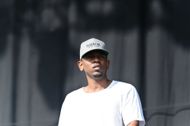
What started as a flash of competitive swagger on Big Sean's unfinished song Control in August 2013 would quickly escalate into one of the most scrutinized relationships in contemporary hip-hop. Kendrick Lamar's verse, which took an unapologetic shot at his rap contemporaries and, by extension, Drake, shook the world.
Though Kendrick Lamar professed it was said in a place of love and lyrical one-upmanship, his belligerent demeanor ignited passionate discourse throughout social media and music platforms. Drake responded by diminishing the influence of the verse in follow-up interviews, dismissing it as high-minded pretension and casting doubt on Kendrick's sincerity in private.
The ensuing months witnessed both rappers trading ever sharper verses and subliminal shots, from Drake's Nothing Was the Same lines to Kendrick Lamar's biting rejoinder at the BET Hip Hop Awards cypher.
Despite public efforts to play down their feud, denying any actual animus, the music narrated a richer tale, that of two artists working through shared respect, pride, and the pressure of being a generation's representative.
Read More: 8 most popular John Lennon songs of all time
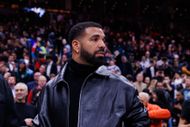
Kendrick Lamar's long-standing feud with Drake has been playing out over the last couple of years or so, with both rappers going back and forth with thinly disguised shots at one another in hip-hop tracks. This is usually termed a Cold War by Vibe journalist Marc Griffin in 2024 and was characterized by lyrical nuance as opposed to obvious diss song recordings.
If You're Reading This It's Too Late mixtape by Drake in 2015 contained songs like Used To and the song 6 PM in New York, all of which were regarded as subliminal diss songs that targeted Lamar. Then Kendrick Lamar released To Pimp a Butterfly, and even though the song King Kunta did not start controversy at first within their beef, the song gained additional importance following the ghostwriting allegation against Drake from Meek Mill.
The line: A ghostwriter rapper? What the f*ck happened? / I swore I wouldn't say / But most of y'all posting bars like you got the bottom bunk in a two-man cell was a straight-up diss directed at Drake. Further evidence of their much-hyped beef was on Dr. Dre's 2015 album Compton, where Kendrick Lamar guested on songs such as Darkside / Gone and Deep Water, and whose verses have been seen as a diss directed at Drake.
Read More: Justin Bieber’s evolution: A journey through music and fame
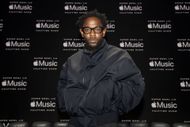
In January 2016, President Barack Obama spoke about a possible rap beef between Kendrick Lamar and Drake, and Lamar's response, and fueling the beef, and Drake replied on his song Summer Sixteen and shot at Obama and Kendrick Lamar.
With the beef growing, sportscaster Marcellus Wiley filled in back in 2016 to indicate that an interview of Drake or Kendrick Lamar on ESPN's SportsNation was yanked after one of the rappers' entourages complained about a potentially tense exchange that would have further stoked their beef.
Until 2017, Kendrick Lamar's The Heart Part 4 release was theoretically off the mark to be directed at Drake and Big Sean and their constant beefs.
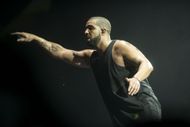
In 2022, Mr. Morale & the Big Steppers by Kendrick Lamar also featured a verse in Father Time with a veiled remark on his interpretation of the Kanye West-Drake peace pact and left everyone wondering which side he's on. The rivalry grew stronger, and every release made their dysfunctional relationship more complex.
J. Cole stepped up in October 2023 with Drake's First Person Shooter, thereby becoming, together with Drake and Kendrick Lamar, the Big Three of modern hip-hop, and he the best among them. The chart-topping single reached the top of the Billboard Hot 100.
Kendrick Lamar took revenge on Future and Metro Boomin on Like That in 2024, ending the Big Three period and claiming victory with "motherf**k the big three, it's just big me."
This sparked a tit-for-tat game of diss tracks: J. Cole released 7 Minute Drill, then erased it and apologized; Drake released Push Ups and Taylor Made Freestyle dissing Kendrick and others; and Lamar retaliated with Euphoria and 6:16 in LA, making fun of Drake's life and parents.
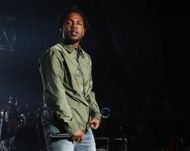
Drake retorted with Family Matters and Meet the Grahams, finger-pointing Kendrick for infidelity and burning him over child drama, but Lamar retaliated with Not Like Us, in which he shot at Drake and his crew, and The Heart Part 6, where Drake spoke to pedophilia and wife abuse allegations. The beef swayed as both artists traded insults about each other's lives, relationships, and personalities on social media and in songs.
In June of 2024, Kendrick Lamar broke out on an eagerly heralded solo headlining tour, The Pop Out: Ken & Friends, in Inglewood's Kia Forum, which owed its title to the line of Not Like Us ("Sometimes you gotta pop out and show ni**as").
Kendrick started his set with Euphoria, which featured fresh lyrics directed at Drake's acquisition of Tupac Shakur's crown jewel ring. Ab-Soul later joined Lamar on stage to debut 6:16 in LA, and Lamar performed Like That live for the first time before Dr. Dre was escorted onto the stage.
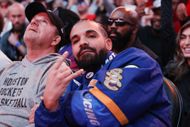
They performed Still D.R.E. and California Love, the latter of which had been recorded with Tupac. Following the mythological trail, Dre hosted the intro to Not Like Us, and Kendrick Lamar concluded the concert by performing an encore of the same song.
At the encore set, Lamar rapped on stage with gangsters, such as the Crips and Bloods, before posing for a group photo. Not Like Us was released as the music video on July 4, 2024, American Independence Day.
The video, which gained over 13 million views in a matter of minutes, featured cameo roles by DeMar DeRozan and Tommy the Clown and was filmed on location in Lamar's Compton hometown. It was largely seen as another jab at Drake, particularly with the dance section of Lamar's affectionate family contextualized against much of the abuse that Drake had already sent his way.
The clip was seen as a devastating 'knockout punch' in the long-standing beef by most. The concert also resulted in Schoolboy Q's Toronto concerts being canceled because of alleged safety issues laid at the feet of the Drake-Lamar beef, which the police refuted. Not Like Us won five awards at the 67th Annual Grammy Awards, such as Record of the Year and Song of the Year.
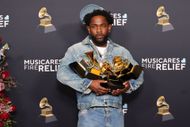
Even though he never name-dropped Drake in his acceptance addresses, Lamar's wardrobe choice, a "Canadian tuxedo," was seen as a lighthearted diss against the Canadian-born rapper.
The performance of Not Like Us at halftime of Super Bowl LIX in February 2025 was another highlight of the feud, with Lamar throwing shots at Drake via lyrics and remarks, adding to the feud.
Kendrick Lamar's guest featured a cameo by Serena Williams, dancing in the crowd to the performance, a tribute to her history, and maybe a shot at Drake, whom she was said to have dated.
The Kendrick Lamar-Drake beef has become the most enduring and engaging feud of modern hip-hop. What initially began as indirect lyrical barbs has gone on to grow into a battle for power, creativity, and ego. The two artists both bring something else to the game of rap: Drake, his number-one hits and worldwide popularity, and Kendrick, his complex lyricism and social commentary.
Despite the public friction, the beef has actually invigorated their creative passion, leading to some of the greatest music and imagery in recent hip-hop history. At last, the war of Drake and Kendrick is a testimony to the aggressive nature of the genre, whereby personal stakes and musical wars get decided in the glare of light. Whether or not it will ever reach a true resolution is uncertain, but its impact on their culture cannot be overlooked.
Keep reading SoapCentral for more informative content!
Also Read: Beyoncé through the years: Hit songs, high notes, and herstory
